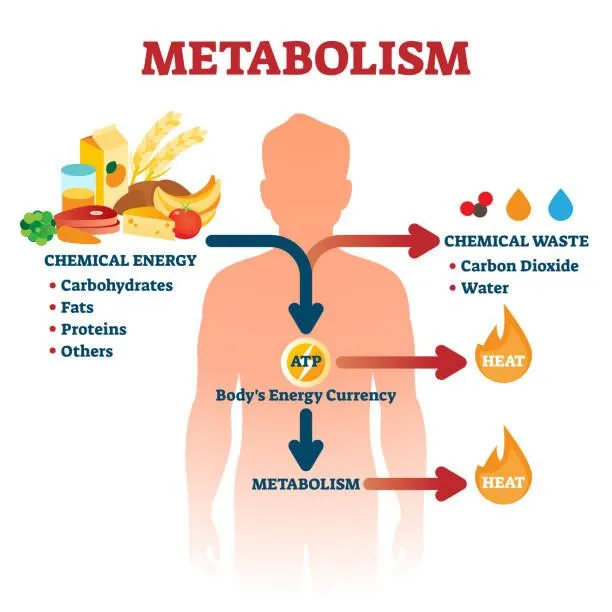
IDEAL WEIGHT COCHRANE
BECOME THE BEST VERSION OF YOU
RESET MIND, RESET BODY, RESET POSSIBLE
Powering YOUR life possible.

The Role of Stress
Deborah has found in her 15 years of coaching weight loss that stress and the emotional landscape of an individual can have a significant impact on weight loss due to its influence on its influence on various physiological and psychological factors (listed below).
In her coaching practice she has found that emotional eating is the missing “X” factor in weight management. It is often beneficial for her clients to address their emotional eating habits prior to starting a weight loss program, as emotions often override the best of intentions and trump will power.
As a trained HeartMath™ practitioner Deborah trains both individuals and groups in “Stopping Emotional Eating” and “Building Personal Resilience.” Both programs are based on the science of neurocardiology – science which reveals the power of the heart in physiological regulation.
In the programs her clients learn the simple, yet powerful tools of the science of HeartMath™ to gain insight into their ‘emotional landscape’ and access the power of the heart to regain insight and coherence.

Ways In Which Stress Can Affect Weight Loss
Hormonal changes

Stress triggers the release of cortisol, commonly known as the “stress hormone.” Elevated cortisol levels can increase appetite and promote the storage of fat, particularly in the abdominal region. This can lead to weight gain or hinder weight loss efforts.
Emotional eating

Many individuals turn to food as a way to cope with stress. Stress eating, often driven by cravings for high-caloric foods, can result in overeating and a higher caloric intake. Alternatively, some individuals under stress stop eating which puts the body into a state of ‘famine.’ In this state cortisol pours into the body, and metabolism slows, both which impede weight loss efforts.
Disrupted sleep patterns

Stress can interfere with sleep quality and quantity. Inadequate sleep is associated with hormonal imbalances, increased hunger, and reduce satiety hormones. It can also lead to fatigue and decreased motivation for physical activity, making it more challenging to maintain an active lifestyle.
Reduced adherence to healthy habits

Reduced adherence to healthy habits, such as regular exercise and mindful eating. This can result in a decrease in physical activity levels and a greater consumption of calorie-dense, nutrient-poor foods, hindering weight loss efforts.
Slow metabolism

Slow metabolism: Chronic stress can impact metabolism. It may lead to insulin resistance, a condition where the body becomes less responsive to insulin, impairing the body’s ability to regulate blood sugar levels and potentially leading to weight gain or difficulty losing weight.
Psychological factors

Psychological factors: Stress can contribute to feelings of overwhelm and anxiety. And depression, which may affect motivation and adherence to weight loss goals. Emotional and psychological well-being play a crucial role in sustainable weight management.
Managing stress is therefore key to a successful weight loss program. This is easier said than done. Most of us have automatic triggers and responses that happen without us even knowing why. Something happens and we immediately react. The brain senses a danger and sends out an automatic fight, flight or flee response. We are often not even aware it's happening. It just does and it seeks a solution for us to feel better. Memory leads us to reach out for something that makes us feel better – the need for a quick fix. This frequently leads us to food which is readily available, and often to less than ideal food choices.
The result? We experience the immediate ‘feel better.” The emergency is over. The brain has done its work in saving us from triggers. The downside is that our choices are often not as healthy as they could be and undo all the hard work of changing to healthier eating patterns. The interesting thing is this all happens in a nanosecond and in terms of weight loss leads to an immediate feeling of guilt. This pattern leads to increased cortisol – aka the fat storage hormone – and has an overall negative impact on our physiology. This cycle undermines our weight loss goals, negatively impacts our emotional well-being, erodes our relationship with food, can, longer term lead to negative health consequences, and undermines our sense of self-control and empowerment.
The good news is that we can break the cycle and the energy drains by tapping into the power of the heart.
Reach out to coach Deborah to learn how.
Your Transformation – The Coaching Process
The three components of your transformational process include three distinct but interlinked processes: Reset Body, Reset Mind, Reset Possible. Our journey together begins with an initial consultation to understand your why, your challenges, and your unique journey. The goal is to build a roadmap for your transformation – always with your health and happiness in mind. Starting from where you are at your journey begins – focusing on weight loss, or perhaps tackling your stress level, gaining understanding of emotional landscape, or altering emotional eating habits, prior to tackling your weight loss journey. As your coach my goal is to support you in “Powering YOUR life Possible.”
MEET DEB YOUR TRANSFORMATION COACH
Coach Deborah a trained Executive Coach, an ICF Associate Coach, and Coach/Mentor and Interventionist in HeartMath™ stress management, tools, and practices, leads clients – 1:1 or in small groups – to explore triggers and gain insight and awareness to these automatic responses. HeartMath™ has – based on the science of neurocardiology. Discovered in 1991 – this science reveals that there is a ‘brain’ in the heart and this brain sends more messages to the brain than the brain does to the heart. Through extensive research HeartMath™ has developed a set of intelligent emotional regulation tools and practices which over time lead to stopping energy leaks and optimizes your emotional battery.

Effective practice of these tools results in increased coherence. Over time practice of these tools helps re-pattern the neural pathways in the brain and the nervous system. This reduces the stress on our physiology, regains emotional and hormonal balance, and builds capacity to improve performance in all aspects of our lives.
Whether your goal is breaking the cycle of emotional eating, seeking ways to build personal resilience, rebalance the impact of stressors in your life, improve communication and relationships, achieve career goals, improve performance, or simply want to feel happier, reach out to Coach Deborah to learn more.
Both small group programs and 1:1 coaching options are available.
SUCCESS STORIES
While on Phase One of Ideal Protein, I became more aware of how my emotional state
affected my food choices. The Stopping Emotional Eating Program has helped me further,
to be more aware of myself in the moment. Looking back I can see where some of the
excess sugar choices were developed as I was growing up. Stopping Emotional Eating is a
journey that compliments my diet program beautifully. It is life changing for me and has me
going on the right road to success.
Rhonda C.
This process has shown me a tool that I believe will be invaluable to myself for years to
come. It has shown me a way to empower myself to deal with my own stress on a regular
basis as long as I make the effort for myself.
Karri M.
It is with much gratitude that I thank Deb Spence for offering the course Stopping Emotional
Eating and introducing me to the HeartMath® technique. During the length of the course I
learned not only how to control my emotional eating but how to get in tune with my emotions in
all areas of my life. With reference to emotional eating, she taught me to use various techniques
to really understand what I am feeling at any given moment and let my body tell me what it
needs. I work in a high stress environment and have realized that using these techniques, it has
enhanced my abilities as a supervisor. Taking time to breathe through my heart, I can calm
myself allowing me to listen effectively and speak mindfully. In my personal life, I have always
displayed high blood pressure readings when attending hospitals. Recently when dealing with
an unexpected health issue, I was able to use the technique of breathing through my heart just
seconds prior to having my blood pressure taken. Much to my surprise and delight, the reading
was absolutely normal! This has never happened before. As well, I can attest that during one of
our sessions I had an epiphany where I came to realize that I can make a change, that I can
solely be responsible for that change and I truly, in my heart and soul, believed it. I was
overcome with joy and gratitude. It was wonderful to be able to share that experience with Deb.
I cannot thank her enough for helping change my life.
Sue H.
© 2023 IDEAL WEIGHT COCHRANE. The landing page design is a trademark of IDEAL WEIGHT COCHRANE.